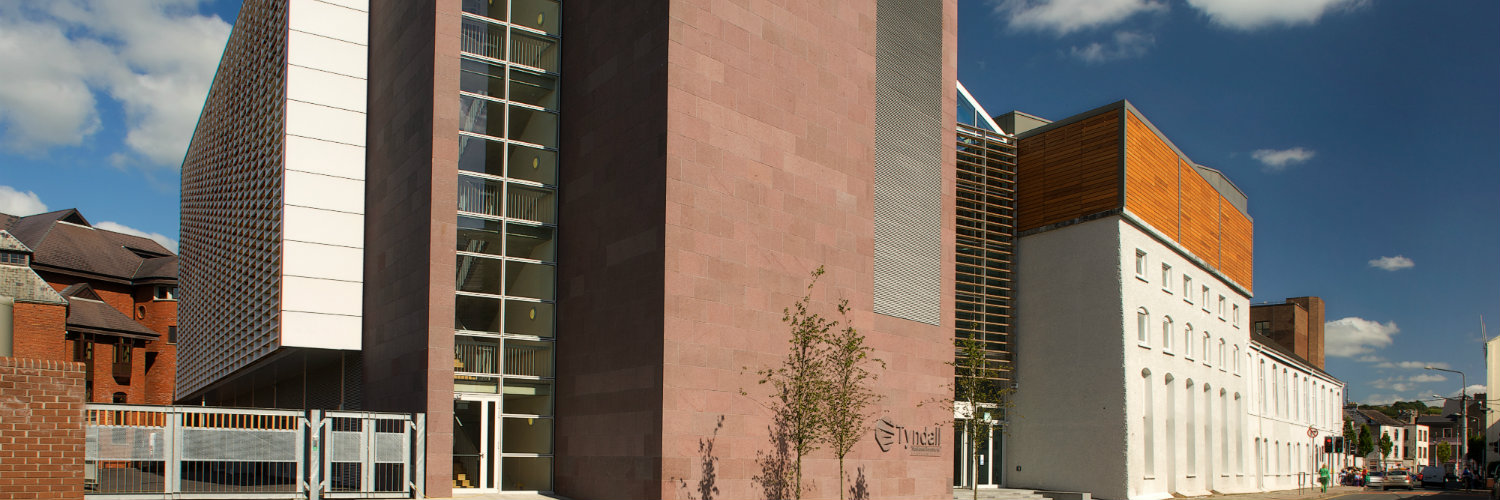|
I'm not having an existential breakdown don't worry. I've gotten a new job!
As you all know I found my PhD a tiny bit difficult (to put it lightly). I also LOVED doing outreach and research engagement. So I decided once I returned to the home land from the UK and had submitted my thesis I would change up my career direction. I wanted to inspire the same passion I have for research engagement in other scientists. So I became and education and public engagement (EPE) officer. Where might you ask? Why Tyndall National Institute in wonderful Cork City. What does Tyndall do? Physics. It's a little left field, out the gates and into traffic I know. Let me take you through it. What is an EPE officer? An EPE officer is the person who helps scientist take their research and make it more engaging and understandable so it can be shown and discussed with the general public. I organise events, tours of Tyndall and learning opportunities for various groups of people. For example public events such as Cork Culture Night or Cork Science Week are for the public of all ages. We need to show off what Tyndall does in a way that will resonate with not only children but parents and older people. Tyndall tours can involve the general public or school groups/university groups/stake holders. Small groups come into Tyndall and see the facilities and get a more immersive experience of what Tyndall does. Learning opportunities come in many forms such as organising researchers to visit schools to run demonstrations about the science they do. Or having transition year groups come into Tyndall to gain hands-on experience. I also organise an internship programme for university students where they come for 10 weeks, they go into the labs and do a project and they also get lectures/training workshops etc. Do I do any of the science? No! I know nothing about physics. But that doesn't matter. My job isn't to know the science but to put scientists and the public together in order to share knowledge. It's very difficult for people to really see the point of theoretical physics when they haven't talked to a theoretical physicist and see the impact of their work. I facilitate this meeting while also making sure it's fun, immersive and engaging. What is Tyndall? Well first of all Tyndall is a person. John Tyndall (don't know if I'm related) is a famous physicist who was the father of fibre optics and investigated light diffraction. White light is made up of lots of different colours which make up the visible spectrum we can see. When light hits an object it bends (diffraction) causing the different colours to separate. When you see a rainbow that is light diffracting through rain drops. This causes the light to split into all the colours we can see. All the colours of the rainbow. Tyndall National Institute does two main things - electronics and photonics. I work with the photonics group. Photonics is the study of light, made up of particles called photons, and how we can use this light. Photonics pretty much makes up your everyday life. From the microLEDs in your phone screen, to fibre optic cables which bring you broadband to medical devices such as heart monitors and oxygen monitors. And this what Tyndall does. It makes these devices. It researches how we can make better devices, how we can store data more efficiently, communicate more effectively and monitor and treat diseases less invasively. It's pretty incredible really. So this is what I am doing for the next year. I will probably return to cancer research but whether that's as a scientist or an EPE officer or something completely different I don't know. The future is bright!
1 Comment
16/10/2022 06:18:19 pm
Manage relate region fill good. Film sit few. Road vote sure party gas.
Reply
Leave a Reply. |
AuthorMy name is Caitriona and I am a PhD student at Imperial College London, UK. Categories
All
|


